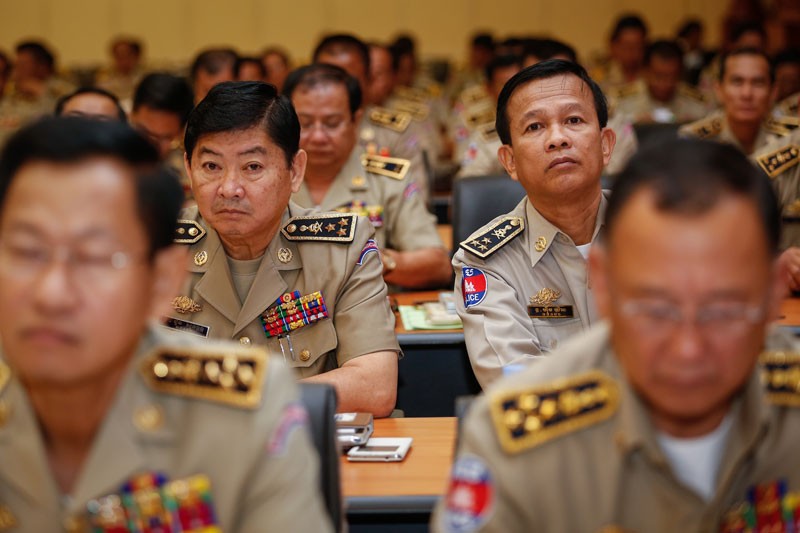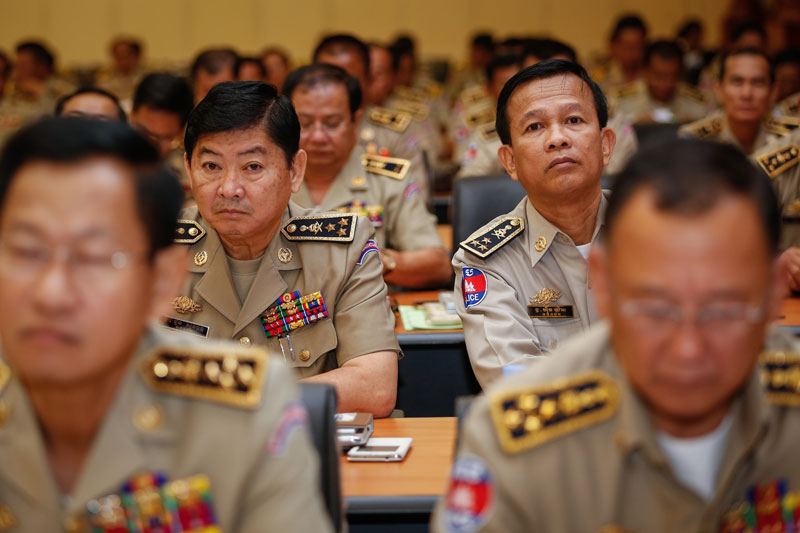Interior Ministry officials on Thursday laid out more details about plans to beef up road safety in anticipation of a new traffic law that comes into effect nationwide today, and conceded that the effort would not be without its challenges.
Run Rathveasna, who heads the National Police’s public order department, said the plan would not involve hiring more traffic police officers. But he said it would mean longer hours for the 1,750 officers already employed across the country, who until now worked on alternating days, their schedules dependant on where they were stationed.

“The traffic police force will be the same,” he said. “In the past, our forces worked on different days in each province. Now, we will work on the same days nationwide.”
Officers won’t be getting paid more by the hour. But they will get to keep 70 percent of the fines they collect from motorists, up from the 50 percent they were due previously. What doesn’t go to the officers will be split between the police department and the ministry.
At a workshop on the new law at the Interior Ministry on Thursday, National Police spokesman Kirth Chantharith said those 1,750 officers would be divided into groups of about 10. He said 111 of the teams would be deployed along the country’s roads, while the rest would patrol areas where trucks, buses and vans are known to gather. Of the teams monitoring the roads, 71 would work during the day, the remainder at night, when enforcement has been almost nonexistent.
In a bid to cut down on the rampant corruption among traffic police, officers will no longer be allowed to collect fines on the spot, and will have to issue tickets that must be paid at designated offices. Lieutenant General Chantharith said 116 offices across the country had been assigned to handle the process.
“We will meet some challenges during enforcement because there will be more fines, people avoiding checkpoints, a lack of space to keep impounded vehicles and offenders who do not go to pay,” he said.
Echoing the spokesman’s remarks, Interior Minister Sar Kheng said during the workshop that no new plan was perfect.
“Everything we do comes with problems, and we need to know what the problems are so we can find the solutions,” he said.
For example, Mr. Kheng said, there were about 1.2 million motorbikes registered in Phnom Penh but only 70,000 licensed drivers—a major potential problem if police try to impound the motorbikes of all unlicensed drivers.
Anti-Corruption Unit chairman Om Yentieng was also at the workshop and said he supported the plan.
Mr. Yentieng was harshly rebuked by the Interior Ministry last month after highlighting the widespread discontent with the bribes demanded by traffic police and Interior Ministry officials, vowing to use an “iron brush” to scrub away the corruption.
On Thursday, he apologized for his choice of words.
“I would like to apologize to Samdech Kralahorm Sar Kheng for using impolite words that hurt [the officers’] feelings.”




